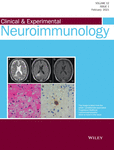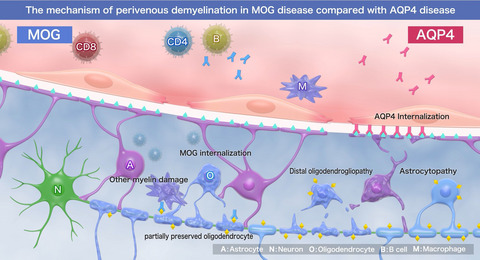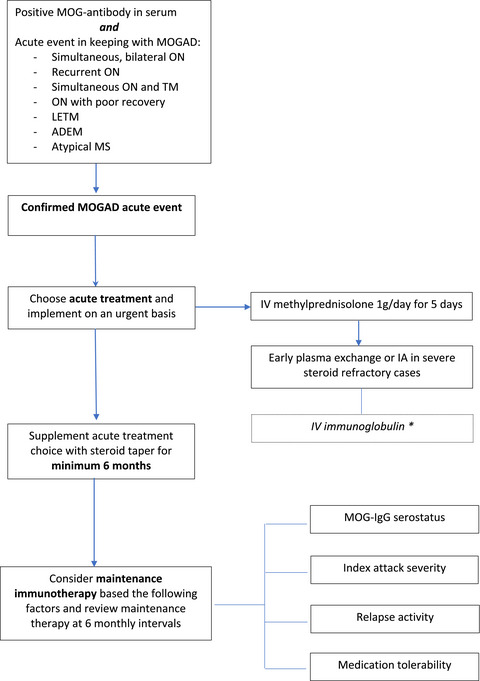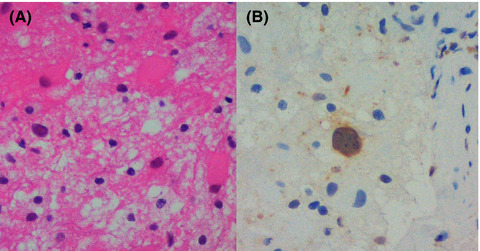Journal list menu
Export Citations
Download PDFs
ISSUE INFORMATION
EDITORIAL
Recent advances in the understanding of myelin oligodendrocyte glycoprotein antibody–associated disorders
- Page: 4
- First Published: February 2021
NEW DEVELOPMENTS IN NEUROIMMUNOLOGY
Pathology of myelin oligodendrocyte glycoprotein antibody–associated disease
- Pages: 5-6
- First Published: 26 October 2020
FOCUSED REVIEW SERIES ON ANTI-MOG ANTIBODY ASSOCIATED ENCEPHALOMYELITIS
REVIEW ARTICLES
Pediatric demyelinating disease and anti-MOG antibody
- Pages: 7-21
- First Published: 11 January 2021

The wide spectrum of MOG-associated CNS demyelination, including monophasic and relapsing forms, seems to be now better understood. Although most children have a good clinical outcome, MOGAD may be a severe relapsing and devastating disorder for a subgroup of patients. Considering the moderate response to current standard relapse prevention therapies additional safe and long-term efficacious treatment options are still much needed for children with relapsing MOG demyelination.
Treatment of myelin oligodendrocyte glycoprotein immunoglobulin G–associated disease
- Pages: 22-41
- First Published: 20 January 2021
Practical recognition tools of immunoglobulin G serum antibodies against the myelin oligodendrocyte glycoprotein-positive optic neuritis and its clinical implications
- Pages: 42-53
- First Published: 14 December 2020
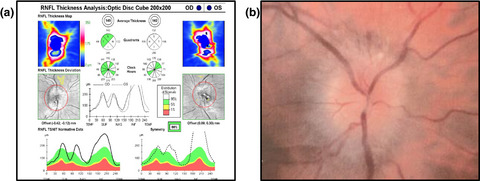
In this review, we discuss the clinical and paraclinical features of immunoglobulin G serum antibodies against myelin oligodendrocyte glycoprotein-positive optic neuritis in adults, and focus on the distinctive features that can enable its early diagnosis. Therapeutical considerations at the acute stage and for relapse prevention are further deliberated.
MS/NMO AND ALLIED DISORDERS
REVIEW ARTICLE
Magnetic resonance imaging of Baló’s concentric sclerosis: Literature review and presentation of two focused cases
- Pages: 54-62
- First Published: 03 September 2020
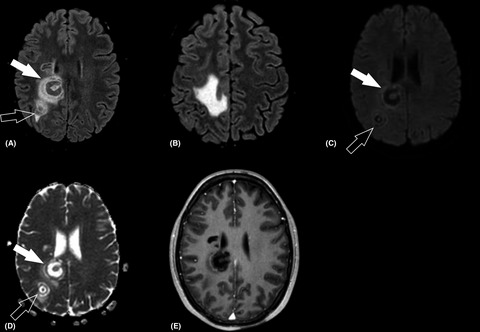
This review aims to describe two cases of Balò’s Concentric Sclerosis (BCS) and to review the state-of-the-art literature. Through the analysis of current imaging practice, our purpose is to help clinicians reach early diagnosis, thus enhancing the chances of a more successful outcome for the patients.
CASE REPORT
Lenalidomide-associated progressive multifocal leukoencephalopathy
- Pages: 63-65
- First Published: 11 July 2020
NEUROSCIENCE AND NEURODEGENERATIVE DISORDERS
ORIGINAL ARTICLE
Circulating inflammatory cytokine levels correlates with cognitive impairment
- Pages: 66-71
- First Published: 02 October 2020
IMMUNOLOGY AND OTHER INFLAMMATORY DISORDERS
CASE REPORT
Voltage-gated potassium channel complex (VGKC) antibody encephalitis in a Filipino adult: A reversible cause of early-onset neurocognitive disorder
- Pages: 72-75
- First Published: 31 July 2020
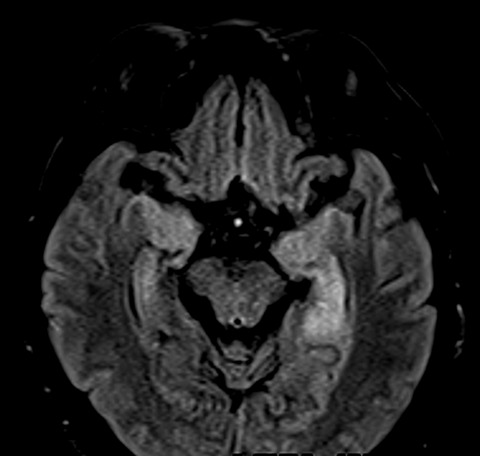
A case of a 46-year-old Filipino female with subacute onset of memory loss, behavioral changes, seizures, and hyponatremia. Workup showed elevated titers of antibodies against voltage-gated potassium channel complex. Intravenous steroid therapy was administered that reversed the neurocognitive disorders.
CENI BEST ARTICLE AWARD ANNOUNCEMENT
AWARD ANNOUNCEMENT
Announcement of 2018 Clinical and Experimental Neuroimmunology Best Article award
- Page: 76
- First Published: 25 January 2021
CONGRESS REPORT
Congress report of 16th International Child Neurology Congress/49th annual Child Neurology Society meeting: Virtual 2020
- Pages: 77-80
- First Published: 08 January 2021




